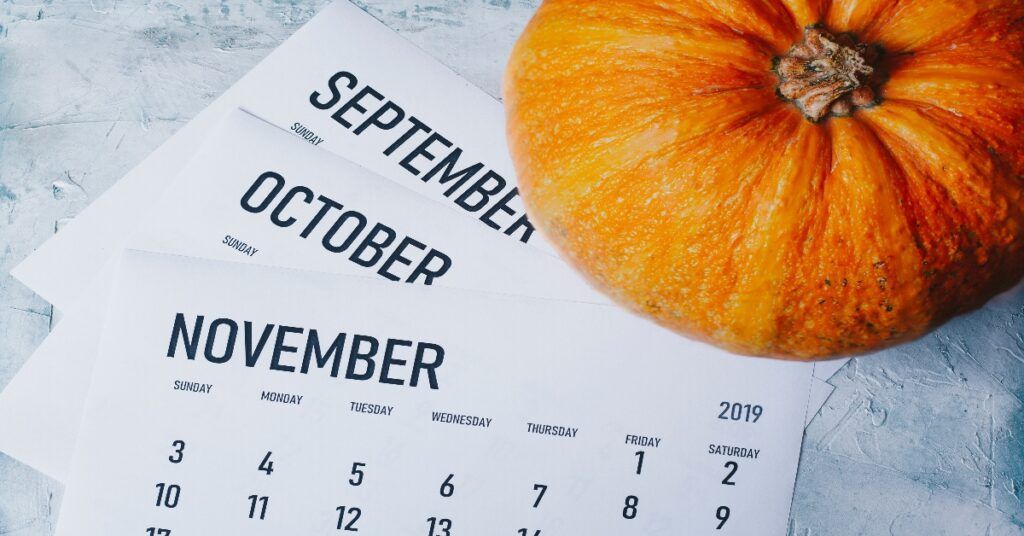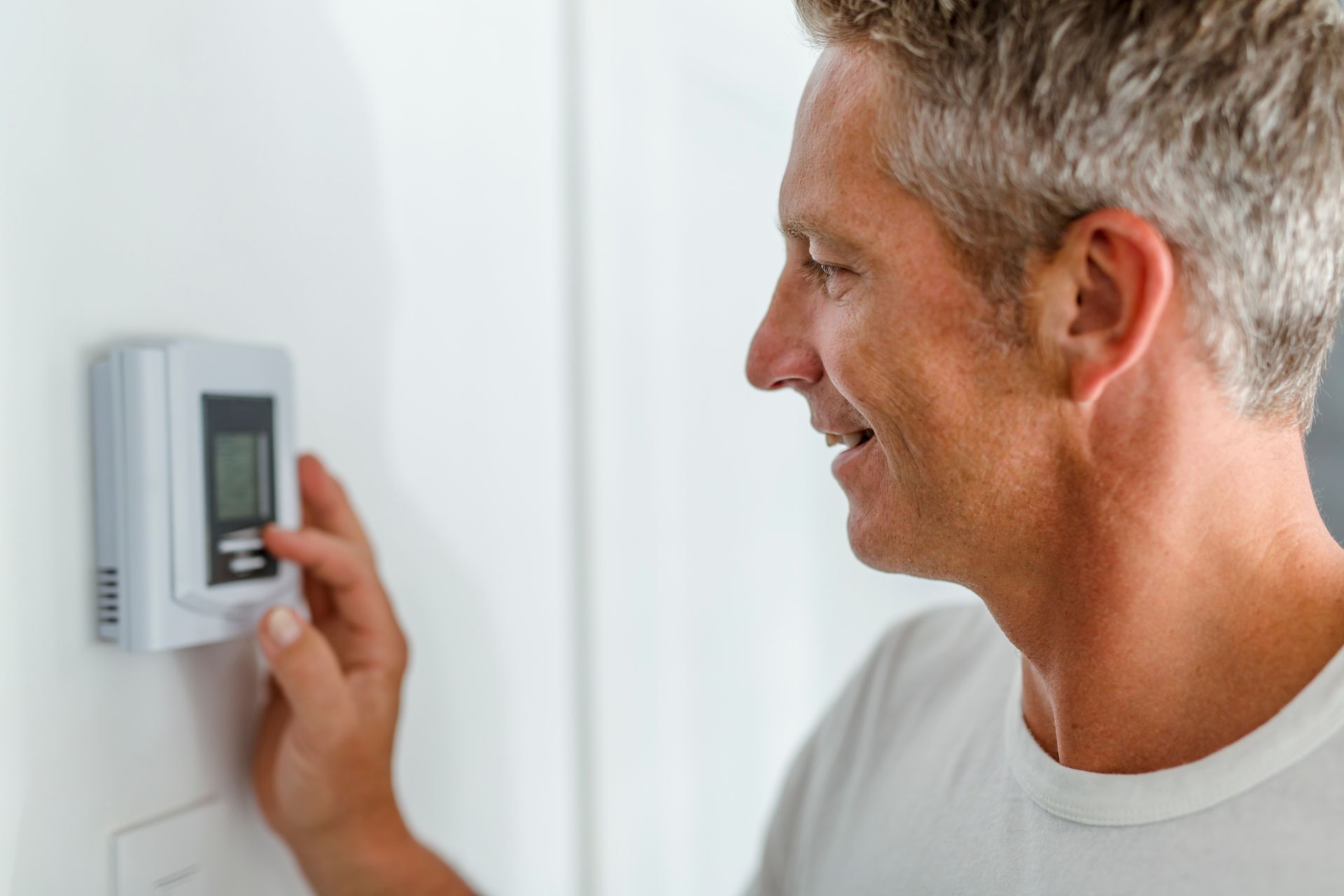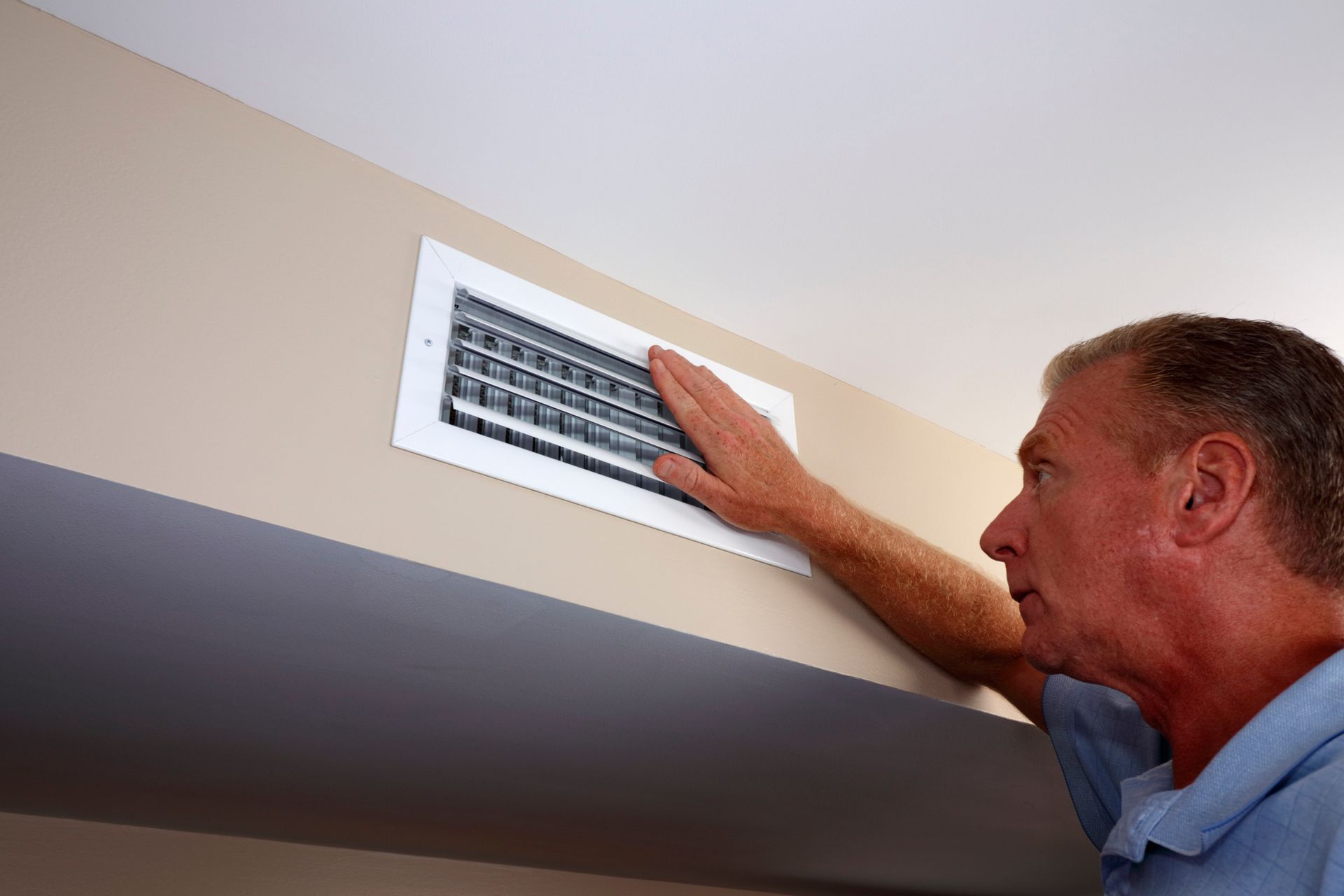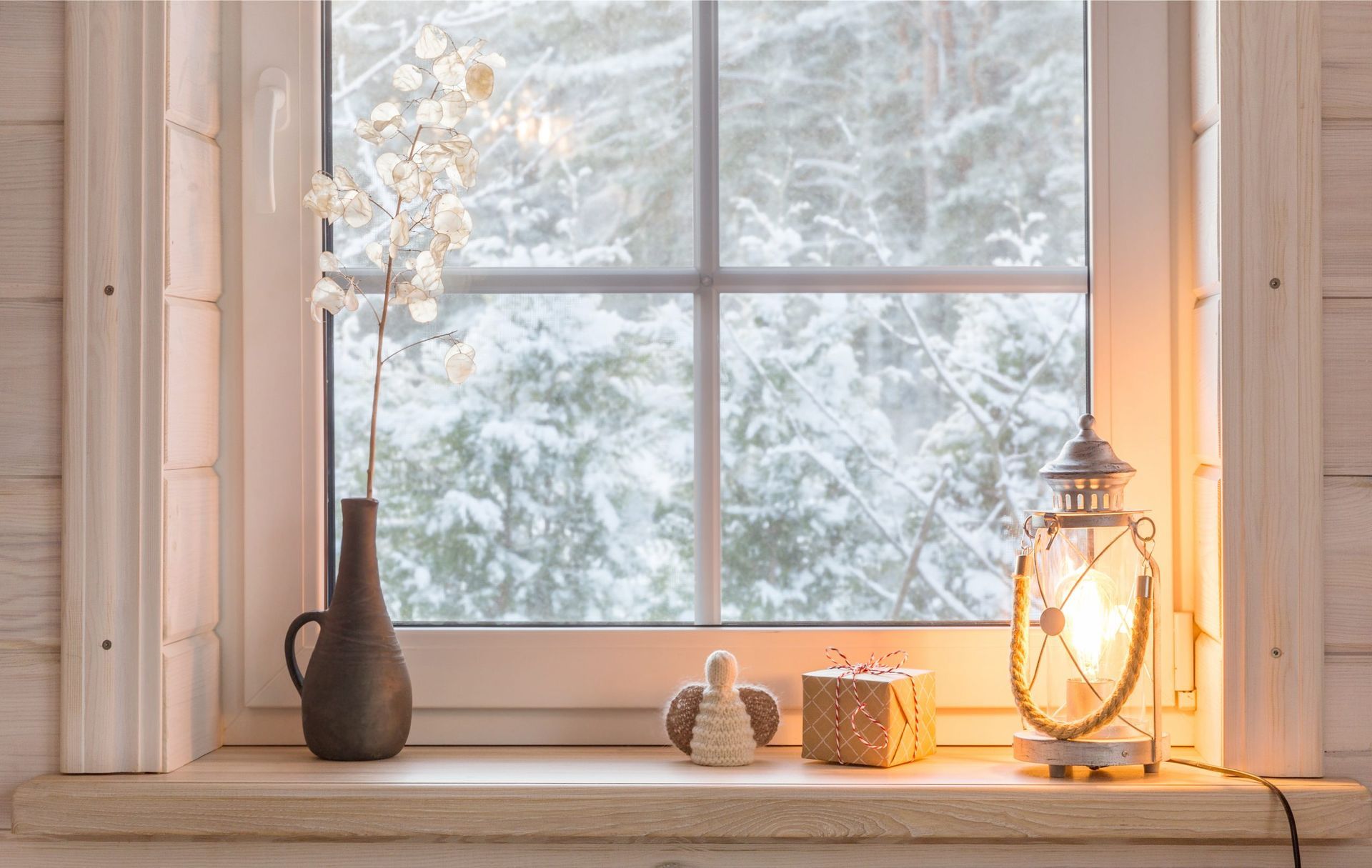Our Blog
Our Blog

March 4, 2021
When it comes to weather, Minnesota is a place of extremes. Our harsh, bitterly cold winters and hot, humid summer days make a functioning furnace and air conditioner crucial to a comfy home. Follow these tips for extending the lifespan of HVAC equipment to get the most out of your system. Schedule Preventative Maintenance Twice Annually Have your system professionally serviced before each heating and cooling season for a thorough tune-up, cleaning, and maintenance service to ensure peak performance and efficiency. Your technician will also catch minor issues to prevent costly repairs later on, as well as help you decide if it’s better to repair or replace . But don’t wait for maintenance service or a total breakdown to have your system inspected . If you notice strange sounds or smells, decreased efficiency or performance, or any other warning signs , call your local HVAC professionals to diagnose and repair the issue before it gets worse. Have Ductwork Professionally Cleaned Every Other Year Dirt, dust, pollen, and other debris naturally settle inside your ductwork over time. This buildup not only impacts airflow and efficiency, but it also becomes a breeding ground for bacteria. As your HVAC unit pumps air to the home, these contaminants get blown out with it and decrease your indoor air quality . Schedule professional duct cleaning service once every two years to help maintain air quality and reduce stress placed on the system. Maintain a Clean Air Filter Clogged filters decrease airflow, forcing the system to work harder and experience a higher level of wear and tear. They’re also the number one cause of breakdowns. Remember to clean or change your HVAC system’s air filter every month. Take Care of the Condenser Unit While A/C condenser units are designed to withstand the elements, they’re not invincible. Inspect your condenser for any damage or debris buildup on occasion, especially after severe storms and instances of hail. Additionally, give the unit two to three feet of space to easily and efficiently draw in air. Keep the unit and surrounding space clean and clear of obstructions as well as grass clippings, leaves, branches, dirt, and other debris. Check the Drainage Pipe Regularly HVAC systems feature a PVC pipe on the indoor unit that leads outside to drain excess condensation. Serious damage to this outlet line can result in expensive repairs, so inspect yours regularly for blockages, debris, and any other issues. Be sure to do so more frequently in winter due to the potential of ice or snow deposits. Invest in a Programmable Thermostat Being strategic with your thermostat can help lower utility bills and stress on your system. However, constantly adjusting the temperature can have the opposite effect. With a programmable thermostat , you can preset temperature and humidity levels over multiple days without worrying about manual adjustments. Ease Stress on the System in Other Ways Give your HVAC system a break whenever possible to maximize its performance and useful life. For more information, check out our helpful guides to optimizing HVAC efficiency in the winter and summer . Heating and cooling systems contribute up to half of a home’s energy consumption, and we rely on them throughout the year in our state. Use this guide to extending the lifespan of HVAC equipment to keep the air in your home clean and comfy for years to come. Backed by over 30 years of industry experience, locally owned and operated WestAIR has the knowledge and expertise for all your heating , cooling , and indoor air quality needs. Contact us to learn more about our services .

September 24, 2020
It’s that time of year again. Fall is here and winter is just around the corner. Now is the perfect time to check your HVAC system. Your heating and cooling system, like all major electrical appliances, needs regular maintenance to ensure it operates at peak performance, which can save you money and headaches down the road. Follow our fall maintenance checklist to keep your system running smoothly all season long. Check and replace your filters – The most important thing you can do at home is inspect the air filter and change it as needed. A dirty or clogged filter makes your system operate less efficiently and can cause unnecessary wear and tear. A good rule of thumb is to replace your filter every month, especially during heating and cooling season. Clean your registers – Keeping your registers and ducts clear of dust and debris is crucial for your HVAC system to run smoothly. Wipe down your registers often and have your duct system professionally cleaned and inspected at least once every three years. Keep your AC and furnace clear of debris – Check your outdoor air conditioning unit for leaves, dirt, sticks, or other debris and if necessary, use a hose to clean the top and sides. Make sure the unit is turned off inside before cleaning. This allows for maximum airflow to the fan and increases the efficiency of your system. In addition, remove debris or anything that blocks airflow from your furnace and keep the area clean. Use ceiling fans and give your HVAC system a break – Although summer is winding down, we’re still enjoying warmer weather that requires air conditioning. Instead of running the AC 24/7, try using ceiling fans to give your system a well-deserved break. On hot fall days, ceiling and portable fans circulate air through the home to help bring the temperature down quicker. On cooler days, try opening your windows and turning on the fans to circulate the cool air into the house to keep it comfortable. Giving your system a break will extend its life and save you money on repairs down the road. Shut down the AC for winter and inspect it for damage – Running your air conditioner nonstop all summer can take a toll on the unit. When the cold weather hits, turn off your AC and check for damage such as cracks or leaks in the refrigerant lines. Also, check to see that the fan is operational and not damaged from falling debris. Replace batteries on smoke alarms and carbon monoxide detectors – Fall is the perfect time to check all your home’s alarms. Alarms should be tested every six months. Replace the batteries if necessary. Listen for unusual noises – Unusual noises coming from your HVAC system are often a result of blockages, debris in the vents, or loose bolts on the furnace or heat registers. If you hear an odd noise, try to locate the source, then call an HVAC technician for an inspection. Turn on the heat now – Don’t wait until the first freeze to test your furnace. Turn on the heater now when temperatures are mild to check for any issues. It’s a good idea to have your furnace inspected and tuned up once a year. Call your heating and cooling technician to schedule an appointment. Know when to call a pro – Many HVAC manufacturers require annual preventative inspections to maintain the unit’s warranty. Review your system’s warranty to determine whether you need professional service . It’s better to have your furnace inspected in the fall before the technicians get too busy. Your heating and cooling professional will check your system for issues, make adjustments to loose wires or bolts, and address any other problems you may have with your unit. Following these fall maintenance tips will help prepare your home for winter and uncover any issues you may have that need professional attention. Planning early can prevent expensive repair costs and keep you comfortable all season long. The experts at WestAIR Heating & Cooling are here to assist with all your HVAC needs. Contact us today to schedule service.

February 22, 2018
Having a working furnace and air conditioner is crucial during the winter and steamy summer days. Don’t run it and forget about it, as wear and tear is inevitable. You can save on costly replacements or repairs through proper maintenance. Extend the life of your HVAC equipment by following these steps. Heating & Cooling Tips Follow manufacturer instructions. Have your systems checked every year by a qualified service technician. It’s best to schedule maintenance in the spring and fall. Technicians are busy in the hot and cold months, and you don’t want to wait until there’s something wrong. Check your filters. Replace your filters every 30 to 60 days . If you have a permanent filter, clean it with mild detergent every 30 to 60 days. This is the most important step to increase the life of your equipment. Dirty filters make heating and cooling units work harder, which will shorten the life with use. Keep your doors and windows closed. Your air conditioner and heater will work harder when there is more air to circulate. Make each space with ventilation smaller by closing your doors. This is the also the case for houses with boilers or window air conditioners. Rather than labor to regulate air temperature in the whole house, your a/c only needs to cool the individual room. With a boiler system, it’s efficient to close off rooms without a radiator. Caulk and weather-strip air gaps on windows. This step is good for your wallet and your HVAC equipment. Old houses are especially drafty, so locate the air leaks by finding damaged glazing or old caulking. Another trick is to turn off all appliances and light an incense stick in each room. Turn on your exhaust vent if you have one. Then hold your incense stick close to windows, doors, and walls for a noticeable change in the smoke. If you have drafty doors, invest in some door draft blockers. Use your thermostat. It’s a myth that you should keep your thermostat at a steady temperature. Most of the time, your furnace will be working harder to maintain the heat at a steady rate. Instead, program your thermostat for a comfortable temperature while you are home and ten degrees less while you are away. However, fidgeting with the thermostat will be less efficient, even if it seems harmless to put it up or down a degree or two. Keep it on a consistent schedule. Energy Efficiency Winter Open window shades when windows are facing the sun. Let the sun warm your house naturally, putting less work on your furnace . The vitamin D is good for you this time of year! Take advantage of using your oven. Slow cook your chicken and oven roast your veggies. The extra warmth will give your furnace a break. Your oven will be working two jobs at once without the added cost. Summer Close window shades facing the sun . Opposite of wintertime, you want to block the sun from adding extra heat to your house. Make sure to put your plants outside so they don’t suffer from the lack of sun! Be smart with your other appliances . When you are doing laundry, hang up your clothes on a line to save energy or strain on your a/c. Why work an appliance that uses heat when it’s already hot outdoors? Washing clothing shouldn’t be an issue, though, if you stick to cold water. If it’s humid out, dry your clothes during the coolest part of the day: around dawn. Same goes for dishwashers. Use your exhaust fans when cooking . Whether you plan on using the oven or stovetop for dinner, turn on the exhaust fan to let out the excess moisture and heat. Or maybe fix a cold sandwich or salad. In return, your air conditioner won’t have to work as hard! Same goes for your bathroom, but not everyone likes cold showers! Annual Service Maintenance Spring is around the corner, so it’s time to schedule your maintenance visit with WestAir Heating & Cooling. Our technician’s maintenance list will take care of most things you cannot do yourself to ensure your equipment is running smoothly for summer and winter: Annual Service Maintenance list: • Clean furnace and check operation/filter • Clean air conditioner and check operation • Clean outdoor condenser and check refrigerant level • Clean air exchanger filters and core • Check radiant in-floor pressures and go over system • Check humidifier filter and drain line • Check unit heater operation • Clean fireplace and check operation Contact us for more information on heating, cooling, or our service maintenance!

October 26, 2017
November is finally pushing us to turn on our thermostats . If you have any last-minute home or work projects to finish, you will need a garage heater as well. If this is your first heater, you will need to assess this situation first. Ask yourself, what do you need a heater for? Heaters for quick projects. Are you doing some quick fixer-uppers such as fixing or replacing parts from time to time? Do you have a designated workspace in your garage? If so, consider getting a portable electric heater. These garage heaters are lightweight, quiet, and provides direct heat. Heaters on the go. Do you need your garage heater for work projects outdoors or for a traveling job? You will want something fast and portable. Portable gas and kerosene heaters are lightweight and need little maintenance. Both use a fan to help circulate air. Heaters for long-term projects. Do you spend most of your time in the garage? Fixing up cars or hanging out with your buds, or just finished the great “Man Cave”? You will want a heater that is installed and thermostat controlled. Installed gas heaters are quick, quiet and project more heat. Electric installed heaters are compact and need little maintenance. Both types of heaters require mounting or installation. We recommend this option because you can keep your space warm to avoid letting your car idle in the winter. You can also provide a warm area for your family or pets. Schedule an appointment today if you are interested in installing a unit heater for your garage.
Categories
Search Blog Posts

– Steven in Albertville




